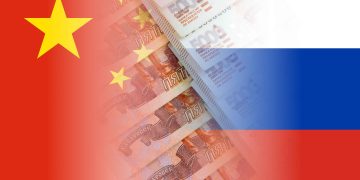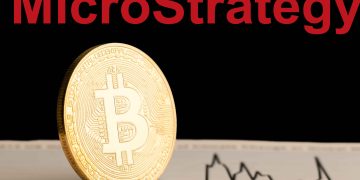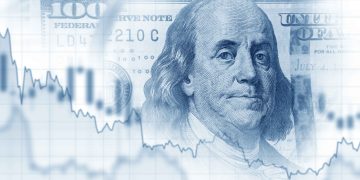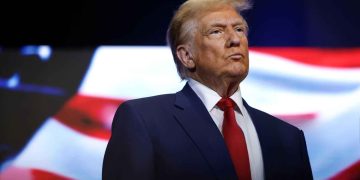Some Chinese retail investors are once again placing bets on a stock connected to former US president Donald Trump, driving its shares to the daily limit for two consecutive days. The stock in question, Wisesoft, a company that produces air-traffic-control software, saw its shares rise 10% on both Monday and Tuesday.
The CSI300 index, which tracks blue-chip stocks in Shanghai and Shenzhen, recorded a 0.2% rise and a 1% drop, respectively. Wisesoft’s shares have doubled in value to 19.98 yuan (US$2.80) over the past month, significantly outpacing the index’s approximately 20% increase linked to China’s stimulus plan. Despite being primarily focused on the Chinese market, Wisesoft’s Chinese name, “Chuan Da Zhi Sheng,” resembles the phrase “Trump victory,” which has led some investors to label it a “Trump concept stock.”
This is not the first time Wisesoft has benefited from associations with Trump. Back in June 2015, just before Trump formally announced his candidacy for the Republican nomination, Wisesoft’s stock soared to more than 47 yuan per share, only to plummet to 16 yuan in less than a month. The stock has since experienced a roller coaster of volatility, remaining below 20 yuan since early 2018.
According to Wang Zichen, a research fellow at the Centre for China and Globalisation, “It’s fair to say that China’s stock market still lacks maturity, and investors often act irrationally.” Wisesoft’s third-quarter revenue declined by 2.43% year-on-year, and its losses increased by 30%, totaling nearly 10 million yuan (US$1.4 million).
While there is clear interest in the upcoming US presidential election, Wang noted that such attention is “very unorthodox or even nonsensical.” The second-largest shareholder of Wisesoft is Sichuan University, holding 6.97%, while Morgan Stanley owns 0.56%, making it the ninth-largest shareholder.
The recent surge in Wisesoft’s stock exemplifies the quirks of China’s A-share market, where retail investors often inflate stock prices based on perceived connections to popular topics rather than the company’s fundamentals. With over 200 million retail investors in China, speculative trading based on buzzwords remains prevalent.
The US presidential election is set for next Tuesday, and polls indicate a tight race between Trump and the Democratic nominee, Kamala Harris. “The high presence of irrational retail investors in China only fuels such speculative sentiment,” commented Xu Tianchen, an economist.
Wisesoft’s stock also experienced a brief surge following an assassination attempt on Trump in July, when images showed him bloodied but defiant after the incident. This led to a swift market reaction, with shares hitting their upper trading limit, although these gains were quickly reversed.
China has its own share of “meme stocks,” where retail investors drive prices based on popular trends. Xu added, “In such cases, stock prices are not justified by financial fundamentals, but by popular attention.” The speculative nature of the market is further amplified by the influence of market manipulators who exploit illiquid, small-cap stocks for profit.
A recent example includes a company called Edadoc Technology, which saw a significant stock price increase after President Xi Jinping quoted, “How many times in life can one seize the moment to fight?” Furthermore, during the peer-to-peer lending boom in 2015, a company rebranded as “Pi Tu Pi” purely for its brand association, resulting in a surge in its shares.
The current enthusiasm for Wisesoft underscores the unpredictable nature of the Chinese stock market, where sentiment often outweighs fundamentals, and meme culture drives retail investor behavior.
4o mini





















